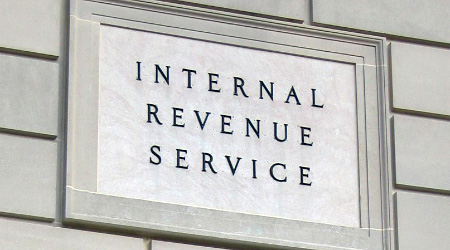Tips For Surviving An IRS Audit

Surviving an IRS audit is no simple task but for those individuals who remain calm, have their paperwork in order and above all else, act professional, the process shouldn't be particularly difficult. Horror stories of being grilled by IRS agents in a dark room under a bright light are often exaggerated but an IRS audit is something that should always be taken seriously. The following tips can help you survive an IRS audit should you find yourself in this situation.
Do Your Homework
As the saying goes, no one plans to fail they only fail to plan, and this is also true when preparing for an IRS audit. You will have received an IRS audit letter outlining specific issues, so be prepared and have all applicable supporting documents which support your position. Common areas of contention are unqualified deductions and questionable business practices. Bring as much information as you feel necessary and be sure to make copies of all sporting documents for your own records and for the auditor.
Always Be Professional
While IRS agents, especially those who conduct audits, often get a bad rap it is usually misplaced. These individuals are highly trained and professional in their only concern is verifying tax information provided to the federal government by filers is honest and accurate. If you remain courteous and polite during the audit process it will go a long way towards making the entire situation more palatable for all parties involved.
Don't Offer Information
People tend to talk a lot, especially when they get nervous, which inevitably leads to more questions and possibly more problems. Consider an audit like a legal court case and you are being cross-examine by the opposing attorney. When asked questions which require yes or no answers then stick to saying just yes or no. If you're asked for more detailed information, listen to the question very carefully and only answer what is specifically required to satisfy auditors' inquiry. This holds true for personal tax documents as well. Only provide documentation which is specifically requested by the auditor.
Seek Professional Help
While nothing prevents an individual tax filer from representing themselves during an IRS audit it is sometimes beneficial to enlist the services of tax professionals. Hiring a certified public accountant or tax attorney may be necessary the more complex your tax filing is, especially when it comes to business related issues. A professionals experience and knowledge can be very useful since they will not only be more familiar with the tax code but may have significant experience with the audit process as well.
Know Your Rights
The Internal Revenue Service is not a monolithic government entity seeking the subjugation of individual tax filers. IRS auditors have a job to do and are on equal footing with those that they audit. What this means is that consumers have rights as in any other proceeding and are free to exercise said rights at any point during the process. If you are unhappy with the auditor's performance you can request to speak with their supervisor at any time during an audit or after an audit's conclusion. If the supervisor is unable to satisfy your concerns or complaints, you are also able to appeal the decision to the IRS Office of Appeals. Roughly 80% of all appeal decisions reach resolution at this point, usually in a settlement. If you still wish to challenge the decision you have the right to a trial in the United States Tax Court.
Elsewhere on StockMonkeys.com







